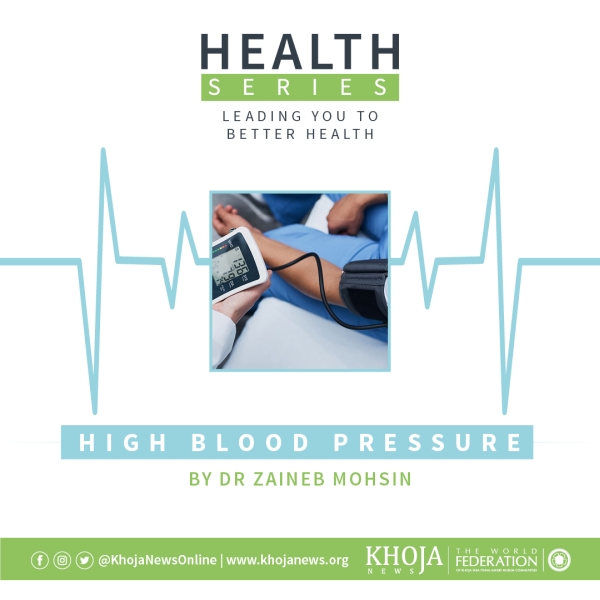WHAT IS HIGH BLOOD PRESSURE:
Hypertension is when the pressure of blood in your blood vessels or arteries is high. You need some pressure to move blood from your heart to the rest of your body. This is recorded as two numbers, one over the other, e.g. 130/80. The number at the top (systolic) is the pressure in the blood vessels when your heart beats and the lower number is the pressure when the heart rests in between each heartbeat.
A person is considered to have a high blood pressure if he has a reading of 150/90 mm Hg or above.

WHAT CAUSES HIGH BLOOD PRESSURE:
In most cases, the cause is unknown and this is referred to as ‘essential hypertension.’ Sometimes it may be caused by hormonal problems or other diseases and this is called ‘secondary hypertension.’
WHY IS IT IMPORTANT TO CHECK YOUR BLOOD PRESSURE?
The vast majority of patients with high blood pressure do not have any complaints until they develop a complication such as a heart attack or stroke. Therefore, screening for blood pressure is very important.

HOW IS HYPERTENSION DIAGNOSED:
Hypertension is not diagnosed by a single raised reading. Your blood pressure fluctuates throughout the day. You have hypertension when the readings are consistently high. This means your heart has to work harder to pump blood to the rest of your body. A high blood pressure can be completely silent or it may cause complaints such as headaches, fatigue, dizziness or chest pain. Therefore, even if you feel well, it is important to get your blood pressure checked regularly at the GP’s surgery.
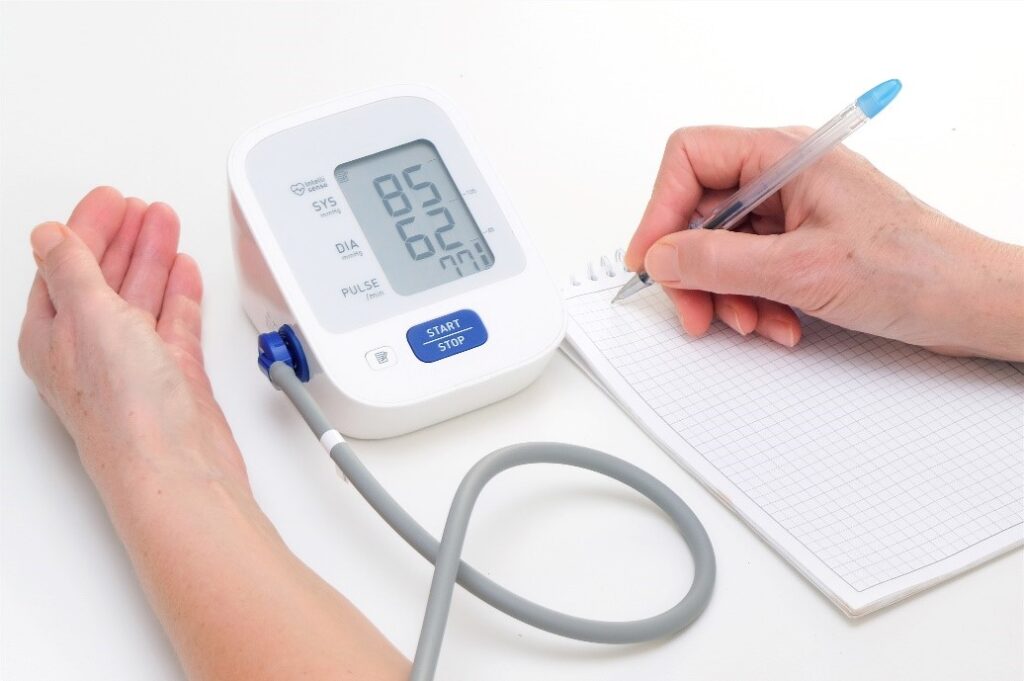
Some people get a high blood pressure when they visit their doctor due to anxiety, but their blood pressure is otherwise normal at home. This is called white-coat hypertension. Therefore, your GP may give you a machine to check your blood pressure at home, to confirm a diagnosis of hypertension. In some cases, you may be asked to check your blood pressure at home yourself using an automatic machine with a cuff and record this twice a day for 2 weeks for your GP to look at.
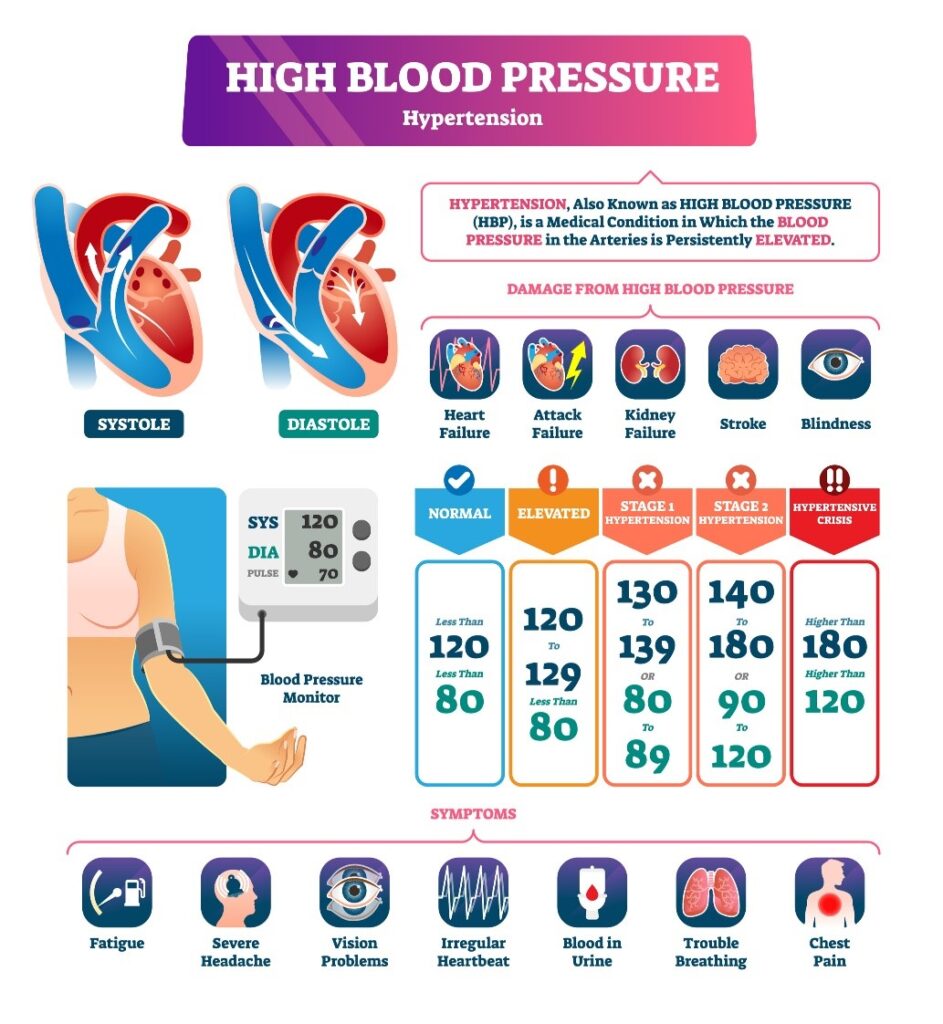
WHO IS AT RISK FOR HYPERTENSION
There are certain risk factors which are associated with developing a high blood pressure. This includes diabetes, being over-weight, lack of physical activity, eating minimal fruit and vegetables in the diet and excess salt intake. Being male, an Indian or African-Caribbean ethnicity or a family history of high blood pressure are other notable risk factors.
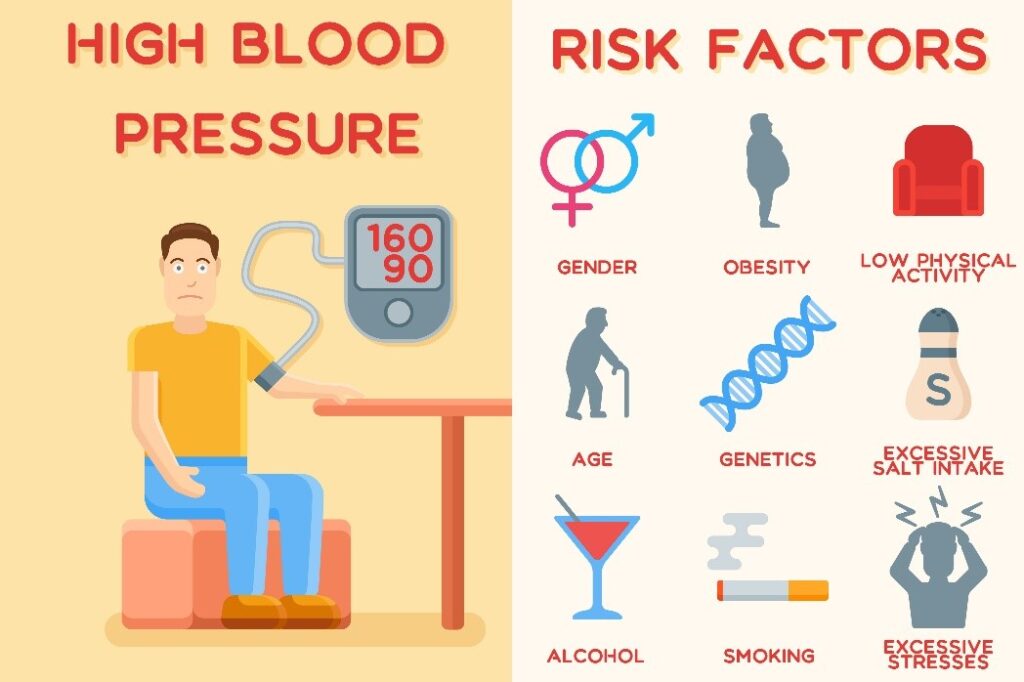
HOW IS HYPERTENSION TREATED
You can also manage your blood pressure by lifestyle measures such as losing weight if you are overweight, regular exercise, stress reduction and reducing the amount of salt in your diet. The DASH (dietary approaches to stopping hypertension) diet is often recommended to patients with high blood pressure. Sometimes, this is enough to control mild or Stage 1 hypertension or a blood pressure less than 140/90.

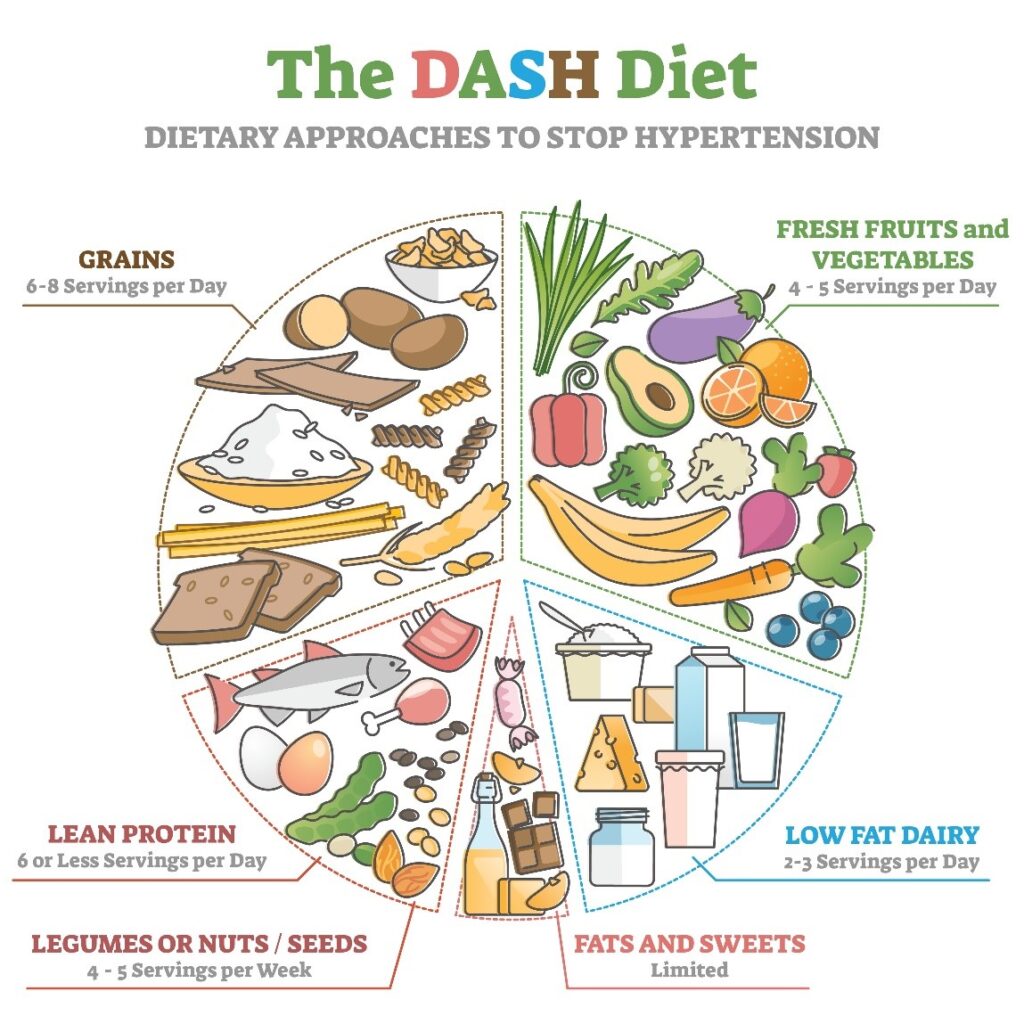
WHAT ARE THE COMPLICATIONS OF HYPERTENSION
High blood pressure is serious as if untreated, it can lead to diseases such as heart attack, strokes, heart failure, kidney failure and memory loss (vascular dementia).

WHERE CAN I FIND MORE INFORMATION ON HYPERTENSION
There are several resources online. This includes:
Authored by:
Dr Zaineb Mohsin
MBBch, MSc in Critical care (UK), MRCP(UK)
Qualified as a physician, trained in Endocrinology and Diabetes from Imperial NHS Trust and currently working as a research fellow in Metabolic bone disease at Oxford University



